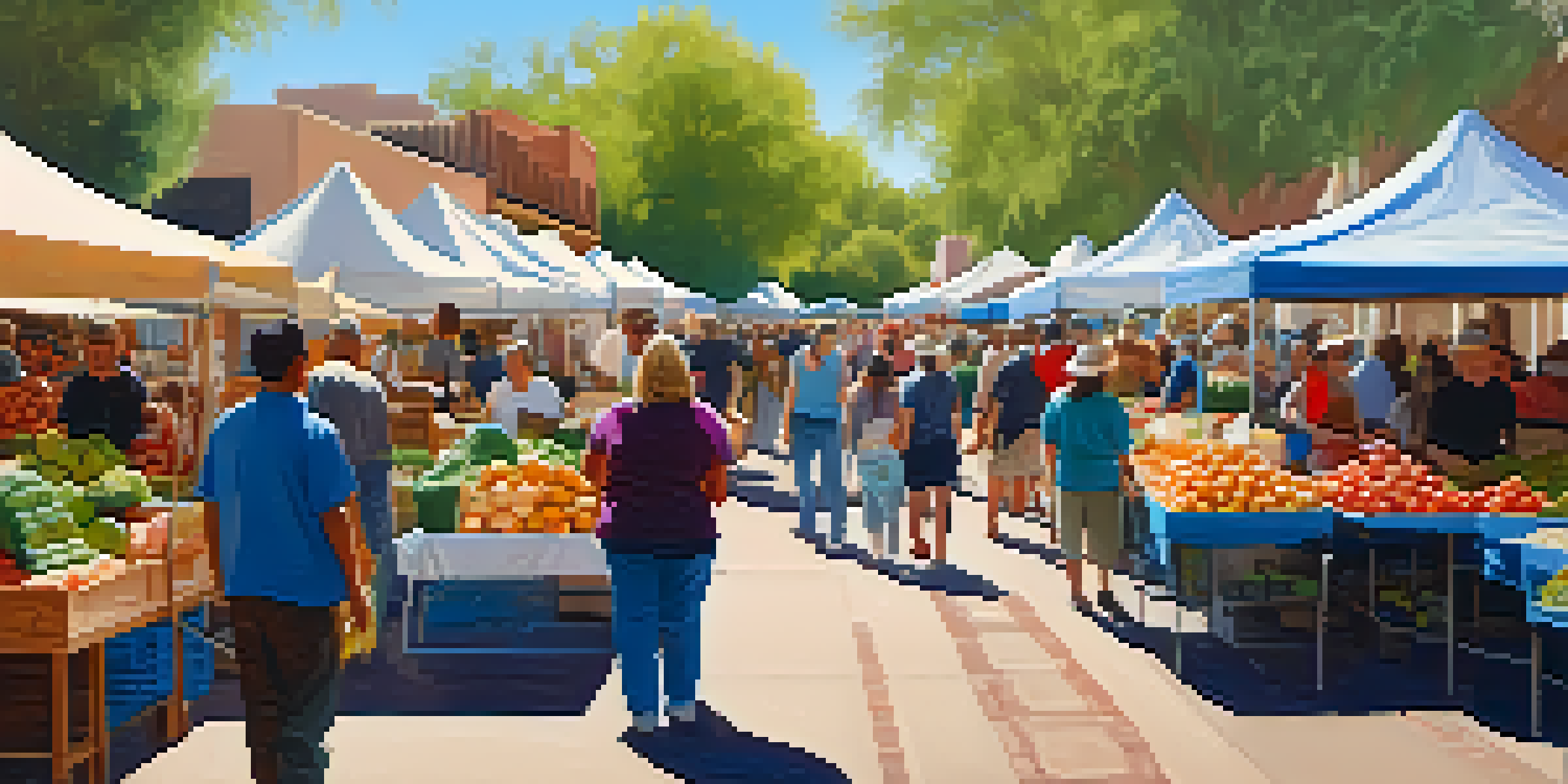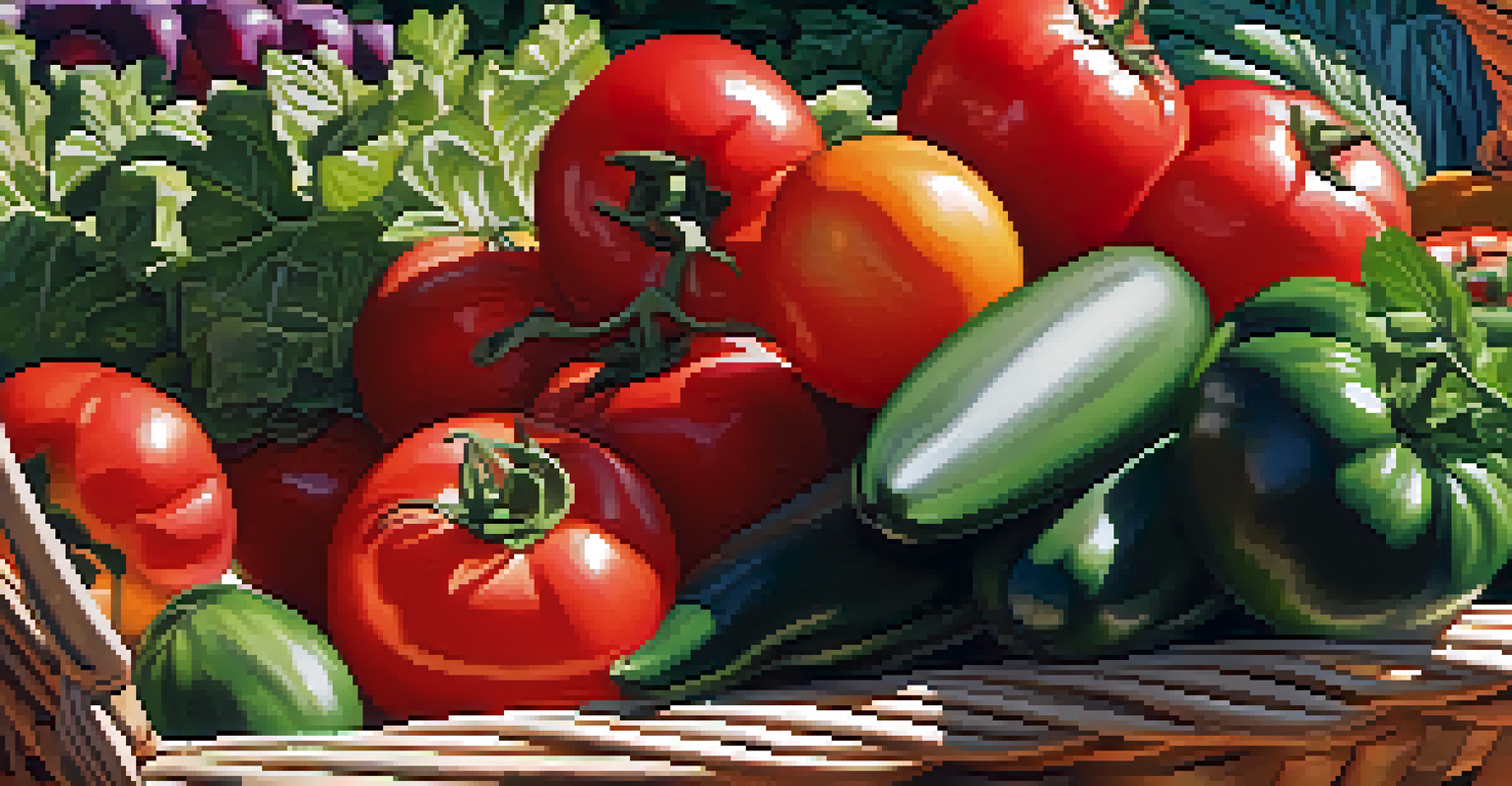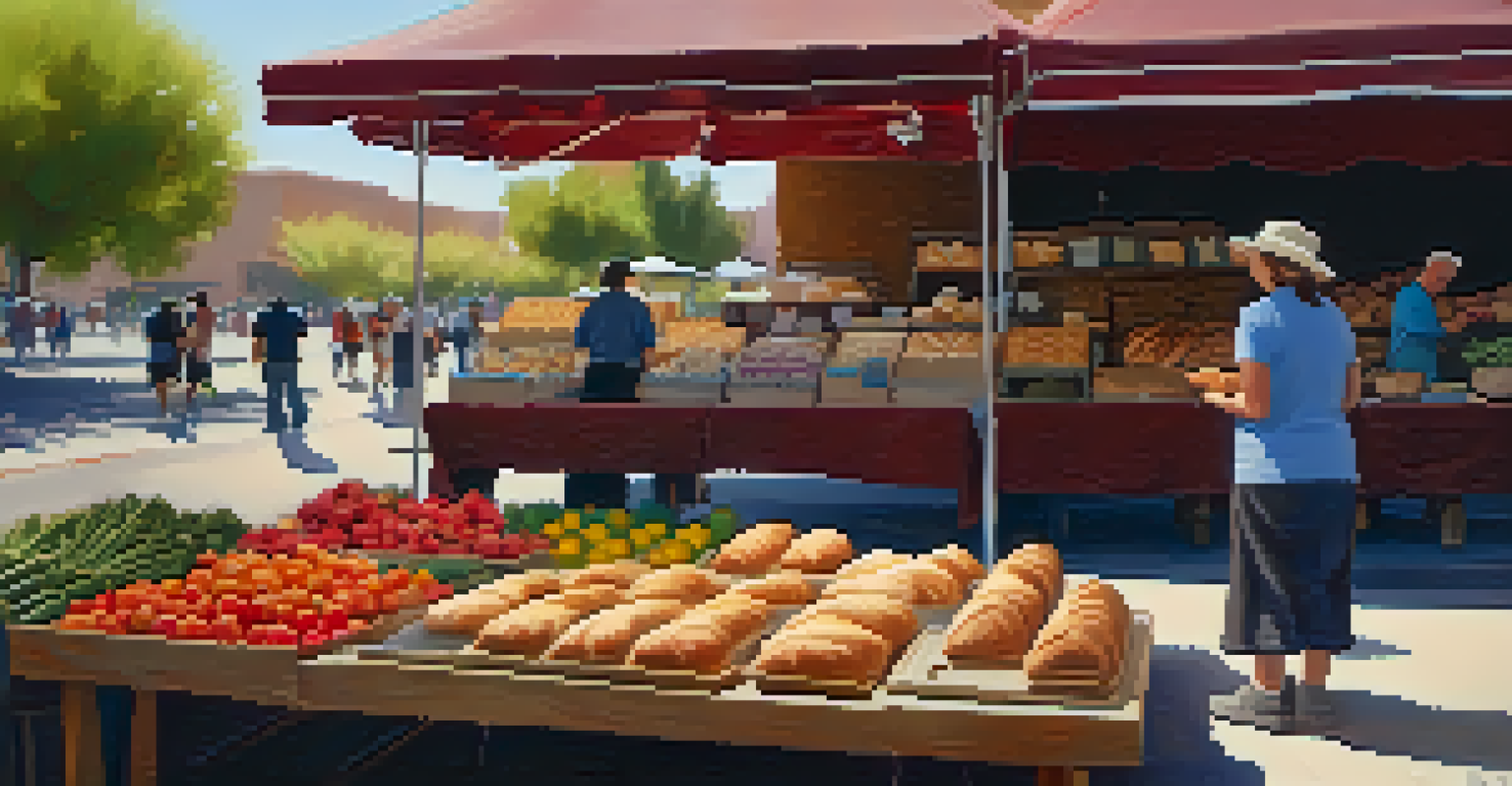The Role of Farmers' Markets in Tucson's Local Economy

Farmers' Markets: A Hub for Local Produce and Goods
Farmers' markets in Tucson serve as vibrant hubs where local farmers and artisans showcase their fresh produce and handmade goods. These markets not only provide a platform for small-scale producers but also foster a sense of community among residents. By shopping locally, consumers support sustainable farming practices and help reduce the carbon footprint associated with transporting goods.
The future of food is local. It’s about getting back to our roots, and supporting the farmers that feed us.
In Tucson, markets like the St. Philip's Plaza Farmers' Market and the Tucson Farmers' Market at 260 S. Avenida del Convento are prime examples of how local economies thrive. Shoppers can find everything from organic vegetables to artisanal cheeses, directly connecting them to the people who grow and make their food. This direct line of communication creates a stronger bond between consumers and producers, enhancing the local food culture.
Moreover, by promoting local products, farmers' markets play a crucial role in preserving the uniqueness of Tucson’s agricultural landscape. They help maintain diverse farming practices, ensuring that the community continues to enjoy a variety of fresh and seasonal options throughout the year.
Economic Impact: Keeping Dollars in the Community
Farmers' markets significantly contribute to Tucson's local economy by keeping money within the community. When residents purchase goods from local vendors, a larger portion of that money stays in Tucson compared to shopping at large chains. This circulation of funds helps support local jobs and stimulates economic growth.

Studies show that for every dollar spent at a farmers' market, a considerable amount is reinvested into the local economy. This supports not only the farmers but also the local businesses that provide services and products to these vendors. Over time, this creates a ripple effect, enhancing overall economic resilience in the area.
Boosting Local Economy
Farmers' markets keep money circulating within Tucson, supporting local jobs and businesses.
Additionally, farmers' markets often lead to increased foot traffic in surrounding businesses, benefiting everyone in the area. By attracting shoppers to local markets, nearby cafés, shops, and restaurants also see an uptick in customers, creating a vibrant economic ecosystem.
Health and Wellness Benefits of Farmers' Markets
Beyond their economic contributions, farmers' markets play a pivotal role in promoting health and wellness in Tucson. By providing access to fresh, locally-grown produce, they encourage healthier eating habits among residents. This is especially important in a time when access to nutritious food can be challenging in some communities.
Eating locally is not just about food; it's about community, health, and preserving our environment.
Markets often feature a variety of organic and seasonal options, allowing shoppers to experiment with different fruits and vegetables they might not typically buy. This exposure can help broaden culinary horizons and introduce families to healthier meal options, ultimately benefiting public health.
Furthermore, the social aspect of visiting farmers' markets encourages physical activity. Whether it’s walking to the market, carrying produce home, or even participating in cooking demonstrations, these activities contribute to a more active lifestyle for Tucson's residents.
Community Engagement and Education at Markets
Farmers' markets are not just shopping destinations; they also serve as educational platforms for the community. Many markets host workshops, cooking demonstrations, and nutrition education sessions, empowering residents with knowledge about food sourcing and preparation. This engagement fosters a deeper understanding of how food impacts health and the environment.
For example, local chefs might demonstrate how to prepare seasonal dishes using produce available at the market, sparking interest in cooking and healthy eating. Such initiatives not only enhance the shopping experience but also create a more informed community that values local agriculture.
Promoting Health and Wellness
These markets provide access to fresh produce, encouraging healthier eating habits among residents.
Moreover, these markets often provide a space for local organizations to promote various initiatives, from sustainability to food justice. This collaboration strengthens community ties and encourages residents to participate in local events and causes.
Supporting Local Farmers and Artisans
One of the primary roles of farmers' markets is to provide direct support to local farmers and artisans. By eliminating the middleman, these markets allow producers to earn a fair price for their goods, which is crucial for their sustainability. This economic support helps maintain local farms and artisans, ensuring that Tucson continues to have a rich agricultural landscape.
The relationship between farmers and shoppers fosters a sense of trust and transparency. Consumers can ask questions about farming practices and the origins of their food, which helps build a connection to the local food system. This transparency can often encourage more sustainable practices among producers as they become more accountable to their customers.
Additionally, by prioritizing local vendors, farmers' markets help preserve traditional farming techniques and artisan crafts that might otherwise be lost. This cultural preservation is essential for maintaining Tucson's unique identity and heritage.
Promoting Sustainability and Environmental Stewardship
Farmers' markets in Tucson champion sustainability by promoting environmentally-friendly practices among local producers. Many vendors utilize organic farming methods, which reduce the use of harmful chemicals and pesticides. By supporting these practices, consumers contribute to a healthier environment and encourage more sustainable agriculture in the region.
Additionally, purchasing local goods means that products do not have to travel long distances to reach consumers. This reduction in transportation not only cuts down on carbon emissions but also means fresher produce for shoppers. The emphasis on local sourcing helps cultivate a culture of environmental responsibility within the community.
Fostering Community Engagement
Farmers' markets serve as educational platforms, connecting residents to local food systems and sustainability initiatives.
Through initiatives like composting and recycling programs at markets, vendors and shoppers alike can engage in eco-friendly practices. These efforts reinforce the importance of sustainability in everyday choices, encouraging a more conscientious lifestyle.
The Future of Farmers' Markets in Tucson
As Tucson continues to grow, the future of farmers' markets looks promising. With increasing awareness about the importance of local food systems and sustainable practices, these markets are likely to flourish. Community support and engagement will be critical in ensuring their longevity and success.
Innovations such as online ordering and delivery services are also emerging, allowing markets to adapt to changing consumer behaviors. This flexibility can help attract a broader audience, making local produce accessible to even more residents. As technology advances, farmers' markets can integrate new methods to enhance the shopping experience.

Ultimately, the continued success of Tucson's farmers' markets will rely on a strong commitment from both locals and producers. By fostering a culture that values local agriculture, Tucson can ensure that these markets remain a vital part of the community for years to come.